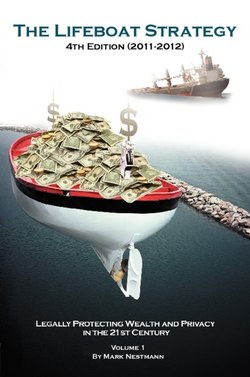Читать книгу THE LIFEBOAT STRATEGY - Mark Nestmann - Страница 20
На сайте Литреса книга снята с продажи.
What Records Do “They” Keep on You?
ОглавлениеOnly a century ago, most people were known only by their name and occupation. Official records of your great-grandparents’ existence, for instance, were likely limited to birth records, baptismal records, death records, census records, the purchase of a home, and perhaps the payment of property tax. Even this information was generally filed and forgotten, because of the considerable expense involved in paying clerks to organize it.
These so-called “public” records were, until a few years ago, retrievable only with a visit to the local courthouse. As technology progressed, the costs for governments and corporations to use the information gathered on private citizens rapidly decreased. The invention of the typewriter in the mid-1800s and the use of “punched cards” (Hollerith cards) throughout the 19th century reduced the costs of compiling and organizing information. But it was the development of the digital computer in the 20th century that made it practical to collect, store, collate and distribute data on a truly massive scale. Today, marketing and data mining companies compile these records in ever-greater detail, and make them available over the Internet.
The information exodus from the filing cabinet to the data bank has blurred the boundary between public and private information. Computers excel at analyzing information that individuals willingly share in order to obtain credit, go to work, receive welfare benefits, or purchase insurance coverage. Most of this information was once considered private, as were the conclusions banks, insurance companies, etc. reached after analyzing it.
This information is no longer private; a result not only of technological innovation, but also of laws that were never designed for the information age. Data mining software can cross-reference information residing in computers to create an amazingly detailed portrait of your wealth, your religious beliefs, and your lifestyle.
Public records now available online include:
• Voter registration records.
• Marriage license records.
• Building and occupancy permits.
• Business licenses.
• Workers compensation information.
• Property tax records.
• Medical records.
• Criminal records (including arrest records).
• County fire marshal records.
• Utility company records.
• Real estate property records.
• Lawsuit filings (including information from discovery proceedings).
• Divorce records.
• State tax cases.
• Professional licensing boards.
• Bankruptcy records.
• Corporate registration records.
• Probate records.
• Telephone bills.
In addition to these public records, most private companies maintain records of the transactions you make with them. In most cases, these companies may use these records as they see fit; you don’t own them.
When you open a bank account, order a pizza, donate to a charity, register a product for a warranty, sign up for a “shopper’s card” at a grocery store, collect a rebate, or order information out of a catalog, the information you disclose (although not your credit card number) may be shared. In some states, even records of your medical prescriptions may be shared. The implications of this data sharing are described further in Chapter 2 (see data mining).
